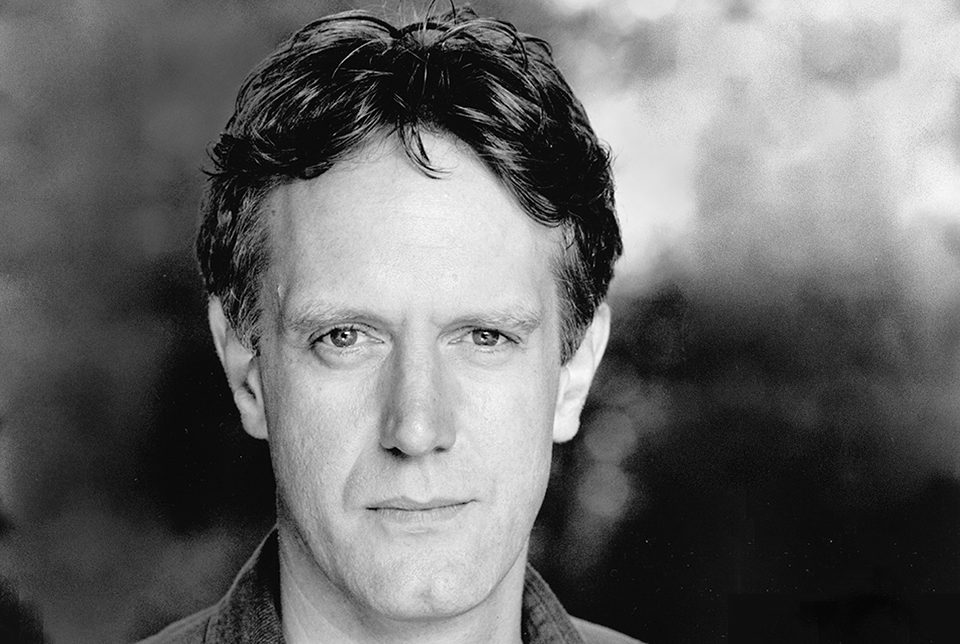Exploring the dichotomy between exterior and interior lives, Simon Robson’s debut, Catch, examines the notions of identity and vulnerability in an increasingly claustrophobic world.
Simon Robson’s extraordinary debut is a perceptive and riveting examination of the dynamics of the individual. Written in prose that is both painterly and precise, it is certain to establish Robson’s reputation as one of the finest British writers working today.
Catharine, the solitary heroine, is alone with only her thoughts for company. Over the course of a day that comes to represent her entire life, she analyses and challenges her existence in an attempt to find a way forward. Set in a quiet village outside London, Catch lays bare the heart and soul of a woman approaching middle age, desperate to have a baby. Combining the perspicacity of Ian McEwan and the poetry of Anne Michaels, Catch is however much more than a day-in-a-life novel; it is an exceptional piece of writing from an author who has come late to this career, but whose artistry is evident on every page.
In 2007, Robson published The Separate Heart, his first foray into writing fiction, having previously written plays during his 20s. This collection of short stories received rave reviews, many of which included exclamations of astonishment that he hadn’t written fiction before. Being shortlisted for the Frank O’Connor Award and with Catherine Taylor from The Guardian stating: “This accomplished debut offers a luxurious reading experience. The common theme is that of separation, of ‘reconciling opposites’, yet each tale is strikingly different: all are equally memorable. Affecting, graceful, recalling the dispassionate precision of Elizabeth Bowen, this is a timeless collection,” Robson was sure to succeed.
It seems only natural that Robson would write a novel, however, even with the accolades, this did not immediately prompt him to write one. “Certainly the short stories gave me valuable experience in just writing with a narrative voice, which was a complete novelty to me; and a great relief too – not having to do everything with just dialogue. There are parts of The Separate Heart that I think are probably a bit lush, just because I was enjoying the freedom of articulation and imagery.” The confident expression and striking imagery that Robson also displays in Catch are so impressive that it really is hard to accept that Robson is new to the art form. He acknowledges “it was probably always something I was going to try, but it takes a long time – or it did for me – to come out of all that reading and want to write prose myself.”
Robson admits to having previously been in awe of people who could write a novel, which is telling coming from such a talented wordsmith. “It always seemed inconceivable to me that anyone could organise such a thing and have anything to say for 300 pages. Like people who look at actors and wonder how they could remember all those lines.” Acting, the theatre, the processes involved in creating and assuming a role are metaphors that creep up all over Robson’s book. This is hardly surprising given that after graduating from Cambridge he studied at the Royal Academy of Dramatic Art and spent many years working extensively in theatre and television, working in theatre with such companies as Shared Experience, Method and Madness, Bristol Old Vic and the Manchester Royal Exchange and in the West End, as well as appearing in EastEnders. His experiences on the stage and screen helped when it came to creating and writing convincing characters. “It’s really hard to say how much being an actor helps, not least because the training and the experience are always a bit abstract. But some of the basic tenets of acting work well for writing, the stakes have to be high; you have to be able change narrative course smoothly and believably; you have to remember that the question ‘if I were this person what would I do?’ is a very potent proposition and ought to be a productive one, too.” With interchangeable skills, Robson creates a work of fiction that shows his incredible diversity and talent.
Perhaps one of the most remarkable achievements in Catch is that Robson writes so convincingly in the female voice. He is, of course, not the first male author to write as a woman, but that he does so in his first novel, and so brilliantly makes it something to be noted. From the first paragraph, Robson deftly draws the reader inside Catharine’s head, the first dialogue doesn’t occur until 60 pages in. By that time, we are intimately acquainted with her hopes, but more significantly her fears. However, Robson points out that he has shared some of Catharine’s preoccupations, which raises the question of similarity between men and women’s inner lives, particularly at a time when many people are eager to point out the differences.
Catch is a novel that captures the spirit of the times. Resonating throughout the text are issues such as depression; conceiving in later life; otherness and knowing other people versus knowing ourselves; and, most poignantly for Catharine at least, what it means to be ordinary as opposed to talented. In Catharine’s house there is a piano, which is an enormous presence in her life. Having learned to play as a child whilst simultaneously discovering the emotional power of music, she eventually realises that although competent, she has no great ability. This forms the crux of her story, as Robson explains: “The starting point for me was the fact that she wanted a creative life, she had the piano and music. And whatever it is when we’re young – cinema, music, novels – I think they can leave people with expectations, which in middle-age prove troublesome. You want to have had those things, but if you don’t have the talent to follow them through, or partake of them fully. Well what happens to someone like Catharine each day when those things are still in the background? Particularly when subject to the pressure to have a baby and to be a wife.”
This pressure has clearly been building before we are introduced to Catharine. For the first time since moving to their new home, Catharine wakes to an empty bed. Her husband, Tom, a brilliant and successful human rights lawyer, has gone away for the day on business. Although she knows he will be back later in the evening, she feels intense isolation. Yet, her solitude is self-imposed and in that solitude her desire to have a baby has taken on mythical proportions, she describes conception as a “profound achievement”. The fact that it has so far eluded her is a cause of heartache, more than she is at first prepared to admit. For Catharine, having a baby would bring meaning into her life, as she believes her life lacks a purpose. She spends the entire day in deep reflection and self-analysis, to the point where she no longer recognises herself. Catharine may initially appear self-obsessed, but it soon becomes clear that what she is going through is much deeper and more serious than mere naval gazing. Early on in the novel she refers to the “tapestry of her character”; by the end of the day she has picked at the stitching of her life until it begins to unravel. Then, just when she is at her most vulnerable, the unlikeliest character enters stage left to push her even further away from herself. It is a riveting and rewarding journey into the mind of a woman who just wants to be known.
Simon Robson is a revelation. He doesn’t just command language, he conducts it across the page; the entire novel builds like a symphony with layer upon layer of intense introspection and spiralling emotion. As he points out: “The advantage of a very simple structure and the time frame of only one day means you don’t have to plot too much and you can see where it takes you. Writing the book became a bit like the day it describes – looking further and further into isolation and self-awareness; the tricky otherness of people; the ever-present past.” Robson explores how personal narratives fit into the wider setting of the world around us and how those narratives are driven by our treatment at the hands of others and, perhaps more importantly in Catharine’s case, how we treat ourselves. Catharine feels trapped, the walls of her life are closing in on her as she gets increasingly tangled up in her own deconstructions of every moment and every thought, until eventually she can take no more. It truly is a day of all days.
Catch by Simon Robson was published by Jonathan Cape in January 2010.
Rachel Hazelwood





